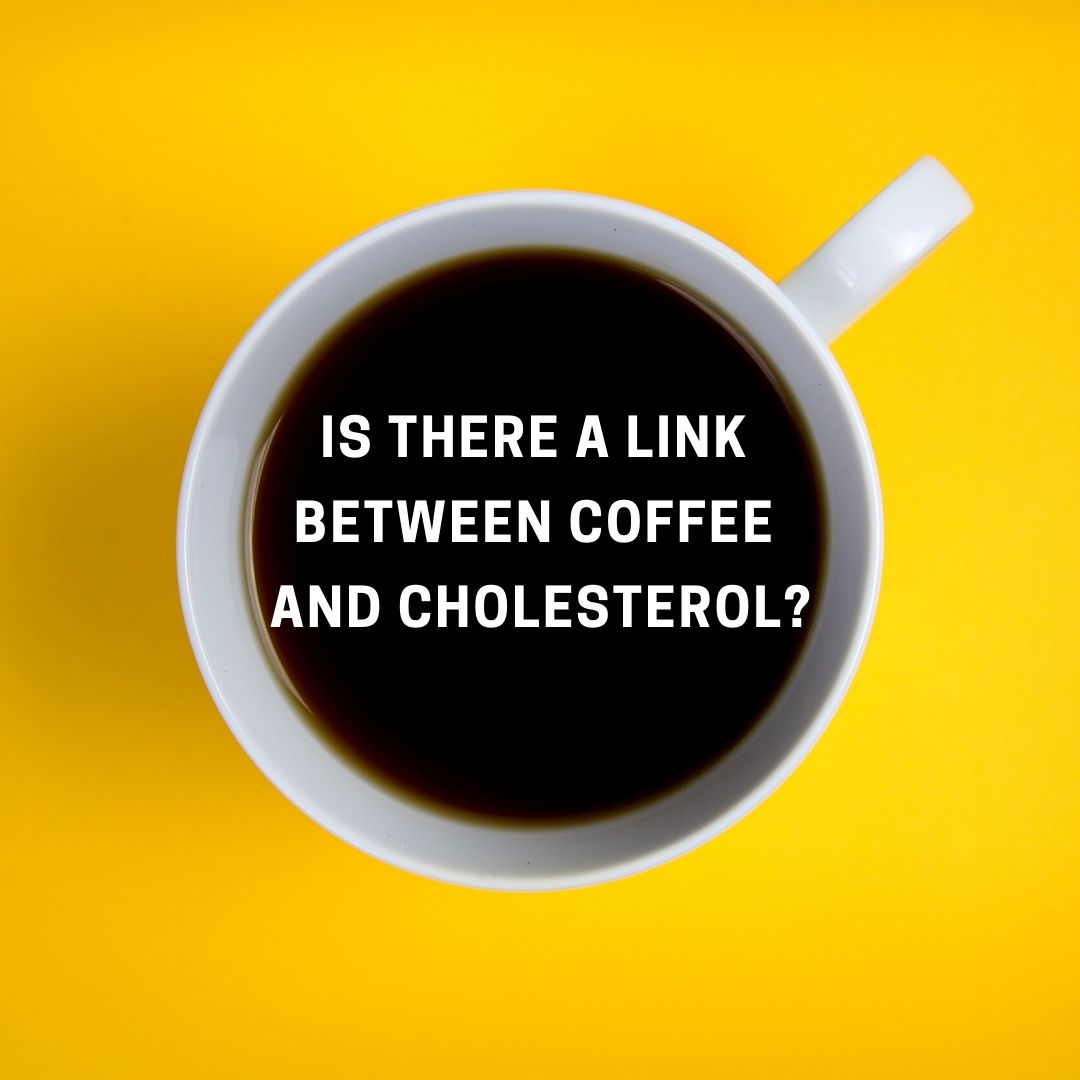Unfiltered Coffee.
Several studies over the past decade have shown a link between coffee and cholesterol.
There are evidences that coffee oils (known as diterpenes), such as cafestol and kahweol, are to blame. Coffee oils are naturally found in caffeinated and decaffeinated coffee. Research indicates that cafestol affects the body’s ability to metabolize and regulate cholesterol. Some studied concluded that cafestol is one of the most potent cholesterols-increasing compound identified in human diet. According to a meta-analysis of controlled studies on coffee and cholesterol, coffee oils may decrease bile acids and neutral sterols. This may lead to increased cholesterols. It has been estimated that each 10 mg of cafestol consumed per day elevates cholesterol by 5 mg/dL (0.13 mmol/L) [1].
How we make coffee matters.
The level of diterpene varies in various types of coffee brews. For instance, Scandinavian boiled coffee provided on average 3 mg of cafestol and 4 mg of kahweol per 150 ml cup. Thus, five cups of boiled coffee per day will provide on average 15 mg of cafestol, an amount that theoretically raises serum cholesterol by 0.20 mmol/L.
High diterpene concentrations were also found in Turkish/Greek coffee, and in plunger pot coffee. A French press, which brews coffee by continually passing water through the grounds, has been shown to have greater concentrations of cafestol.
French press, Turkish coffee, or espresso habit may brew up trouble for your cholesterol. These coffees don’t use a filter, so oily compounds in the beans called diterpenes seep into your cup. These oils can raise LDL cholesterol. While a serving or two a day is OK, experts recommend no more than four unfiltered coffees a day.
It has been suggested that consumption of decaffeinated coffee may relate to increased serum cholesterol levels [2], or even to a higher risk of cardiovascular diseases [3]. However, diterpene concentrations in regular roast and ground coffees and in decaffeinated coffees has been found in multiple studies [4].
Benefits of drinking coffee.
Unless you’re drinking significant amounts of unfiltered or French press coffee on a daily basis, raised cholesterol levels shouldn’t be much of a concern — at least, not when it comes to coffee.
Research has, however, indicated a link between coffee consumption and decreased mortality rate [5]. Coffee has also been associated with protection against diseases such as:
• type 2 diabetes
• liver disease
• Parkinson’s disease
• depression
Warnings and risks.
Bear in mind that caffeine is a stimulant. Too much caffeine can cause headaches, upset stomach and insomnia. Some people are more sensitive to caffeine than others, thereof it is important to assess how coffee effects you. There are evidences that elderly women with preexisting calcium issues who drink large amounts of caffeine may have a higher risk for osteoporosis.
Last but not least, it is good to pint that caffeine is also found in black tea, green tea, chocolate, and energy drinks.
Conclusions.
Research predict that chronic consumption of 5 or more cups of French press coffee or Turkish/Greek coffee per day could increase serum cholesterol. For espresso and mocha coffee, consumption of 15 or more cups per day is required for the same effect. Effects of instant, filtered, and percolated brews are negligible.
While there are reasons to be concerned about coffee raising cholesterol, there’s no need to be alarmed. You may reduce the impact of coffee on your cholesterol by drip-brewing your coffee and enjoying in moderation French-pressed or boiled coffee and espresso.
You might like also this article Caffeine: good or bad for your health?
References
[1] Urget et al. J. Agric. Food Chem., Levels of the Cholesterol-Elevating Diterpenes Cafestol and Kahweol in Various Coffee Brews, 1995, 43, 2167-2172 – link
[2] Superko HR, Bortz W, Williams PT, Albers JJ, Wood PD. Caffeinated and decaffeinated coffee effects on plasma lipoprotein cholesterol, apolipoproteins and lipase activity: a controlled, randomized trial. AmJ Clin Nutr 1991;54:599-605 – link
[3] Grobbee DE, Rimm EB, Giovannucci E, Colditz G, Stampfer M, Willett W. Coffee, caffeine, and cardiovascular disease in men. N Englj Med 1990;323:1026-32 – link
[4] Urget R, Katan MB, The cholesterol-raising factor from coffee beans, J R Soc Med 1996;89:618-623 – link
[5] Crippa A, Discacciati A, Larsson SC, Wolk A, Orsini N. Coffee consumption and mortality from all causes, cardiovascular disease, and cancer: a dose-response meta-analysis. Am J Epidemiol. 2014 Oct 15;180(8):763-75. – link

